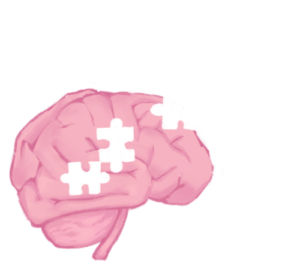Scrolling through her college list, Palo Alto High School senior Vienna Liu paused on Rice University, a school she was once interested in due to its strong academic reputation, but could no longer picture herself at for the next four years. Once she pressed “delete” on her keyboard, Rice University was off her list.
Due to recent anti-abortion legislation in Texas, Liu did not feel comfortable even considering the possibility of attending a school in the state, fearing she would not have access to an abortion if needed.
“I’ve never been to Texas, but [because of] the environment that [the law] creates … I just didn’t really want to be a part of that,” Liu said. “I couldn’t see myself going there for the next four years.”
“A lot of people expect everyone to think a certain way just because of the community we live in.”
Story continues below advertisement— Vienna Liu, senior
The Texas abortion law, known as Senate Bill 8, was passed on Sept. 1, banning most abortions after six weeks. In early November, the U.S. Supreme Court refused to block the law, though it agreed to rule later in the month on what challenges to the law it will accept, according to the New York Times.
Additionally, the Supreme Court will hear arguments on a similar Mississippi law, which prohibits abortion after 15 weeks. The law was originally passed in 2018 but has yet to go into effect. These recent laws have created uncertainty around the 1973 Supreme Court ruling Roe v. Wade, which gives women access to abortion in the first six months of pregnancy, when the fetus is unable to survive outside the womb.
As debates over abortion continue, many young adults feel overwhelmed by the topic so extensively covered in the news. Though perspectives vary, misinformation and a lack of open conversation among adults plague many teenagers’ perceptions of the issue.
The Texas effect
Michelle Oberman, a professor of law at Santa Clara University and nationwide expert on abortion, believes the effect of the recent Texas abortion law will soon reach school classrooms.
“What’s going to happen in places like Texas is that they’re going to try to insert into high school curriculum not just abstinence-only, which is what they’re already doing, but also try to insert abortion myths,” Oberman said.
However, Oberman also believes that the internet will a significant role in abortion awareness.
“The place that I think is going to be interesting to watch over the next 10 years is the war over digital information,” Oberman said. “It’s going to be figuring out online where to get your information from because the war is going to escalate.”
Along with possible conflicting online information, Oberman contemplates the greater impacts of the law, and how opinions on abortion might change in California.
“The open question for me is if Texas is allowed to say ‘This is murder, you should feel really bad if you do this … you should know you’re a murderer,’ whether that has some sort of spillover effect on California,” Oberman said.
An incomplete conversation
Though abortion rights continue to be frequently debated on a national level, opinions on the subject have hardly shifted since the 1970s, according to the New York Times.
Back on campus, Liu acknowledges the polarization; in describing the Paly community, she said it can be difficult to talk about abortion as people tend to be intolerant of views opposing their own.
“I think it’s sometimes kind of hard for people … to speak out and have different opinions, just because we are very polarized towards one perspective,” Liu said. “A lot of people expect everyone to think a certain way just because of the community we live in.”
Not only are divisive opinions harmful, but according to Oberman, the “taboo” nature of abortion as a subject prevents many from engaging in productive conversation.
““I feel like they don’t teach enough about [abortion]. I know that our sex-ed, relatively compared to other things here, it’s decent, but I feel like it could be better.”
— Sonja Meyers, junior
“Honestly, [the national conversation on abortion] just feels like such disingenuous discourse,” Oberman said. “It’s really unproductive because it is so incomplete. And I think the incompleteness of it is because of our inability to talk meaningfully about sex.”
Common misconceptions
Often creating a one-sided discussion is the excessive blame of abortion placed on young girls, Oberman believes.

“In all of this ongoing conversation about legalizing abortion, there is no conversation around boys and men,” Oberman said. “Nobody’s talking about the people who can actually prevent abortion … it’s ludicrous how much misogyny is just accepted as a part of morality here.”
Teen abortion is commonly misinterpreted according to Oberman, who also believes the assumption that teens are careless in their sexual activity harms the dialogue between adults and teenagers.
“From what I understand about adolescents, it’s not sloppiness or carelessness that causes unplanned pregnancy, it’s actually inhibitions around [sex] and responsibility for contraception,” Oberman said. “I resent the allegation that girls are just sloppy.”
Oberman holds a strong stance on how outdated beliefs can affect the lens through which abortion is looked at, saying that not all young girls consider adoption after their pregnancy.
“We know what teenagers are going to do,” Oberman said. “If they can’t get an abortion, they’re going to try to have the baby on their own. We have single moms and they’re teenagers.”
The importance of information
Living Skills, a required class for high schoolers, is the main outlet for the Palo Alto School Unified School District to teach information about contraceptives and safe sex to students. Living Skills teacher Joanna Hubenthal regularly looks for new and engaging ways to expose her students to topics including mental health, sexual activity and abortion.
“We have an activity where we talk about why somebody might want to choose one option … and why they might not want to choose another one based on a whole bunch of scenarios,” Hubenthal said. “So anywhere from a 16-year-old [who] becomes pregnant to a 52-year-old woman who thought she was in menopause but becomes pregnant, or someone who’s undergoing cancer treatment.”
“It’s going to be figuring out online where to get your information because the war is going to escalate.”
— Michelle Oberman, professor
Despite Hubenthal’s efforts in teaching abortion, according to a recent anonymous Verde opt-in survey, 60.3% out of 131 Paly students felt that sex education courses in PAUSD did not address abortion sufficiently. Additionally, out of 136 students, 81.6% thought that the class did not accurately address how abortion can affect one’s mental health.
This opinion is emphasized by Sonja Meyers, a Paly junior, who believes the school curriculum needs to change.
“I feel like they don’t teach enough about [abortion],” Meyers said. “I know that our sex-ed, relatively compared to other things here, it’s decent, but I feel like it could be better.”
Changing the curriculum
To improve school education on abortion, Oberman suggests mirroring the educational models of other countries, where the conversation on the topic is more open and addressed frequently.

“The way that I would ideally have us talk about abortion is to look at countries that have very low abortion rates and notice how they talk about sex,” Oberman said. “So the Netherlands, for example, from kindergarten they talk about [the] good-touch-bad-touch Stranger Danger talk … [and] how [to] make a baby, and how to not make a baby, so that it’s completely normalized long before you hit puberty.”
Oberman highlights other ways to educate oneself online, including abortion information chatlines such as the Planned Parenthood chatline, which provides teens with resources about abortion access, judicial waivers and parental consent.
To go even further in promoting conversations about the topic, Oberman hopes families can talk more about abortion, urging teens to seek out these discussions.
“What would be very helpful is to break the stigma around abortion so that a teenager could ask their mom, their aunts, their grandmas, ‘Can you tell me about the abortion?’ … Ask them to tell you their stories,” Oberman said. “We all have them. And that’s how you change the way we talk.”
How will abortion affect California? Q & A with abortion expert Michelle Oberman
Q: If the Supreme Court overrules Roe v Wade, what will the effect be on California?
A: “And that’s not going to change in California, that will not change for you guys. It’s written into our state constitution. So there’s nothing that Washington could do short of banning abortion and there’s nobody who expects this to happen.”
Q: How will someone get an abortion if it is illegal in their state?
A: “60% of people who have abortions are moms already. So [getting the abortion involves] borrowing money from everyone you can think of because the abortion itself is going to cost you $600. Plus you’ve got to drive there, plus you got a two day waiting period. You need a hotel. Plus you need gas money … Americans, when they think about [making abortion illegal] … are not contending with the reality that anybody with a smartphone and a debit card will find a way to secure the drugs that they need to end an unwanted pregnancy.”
Further reading
Abortion resources
- Abortion Information | Information About Your Options (Planned Parenthood)
- Jane’s Due Process (Jane’s Due Process)
- TextAbby — Carolina Abortion Fund (California Abortion Fund)
Abortion research
- The Turnaway Study (UCSF)
- Guttmacher Institute | Good reproductive health policy starts with credible research (Guttmacher Institute)
- Laws Restricting Teenagers’ Access to Abortion (ACLU)





